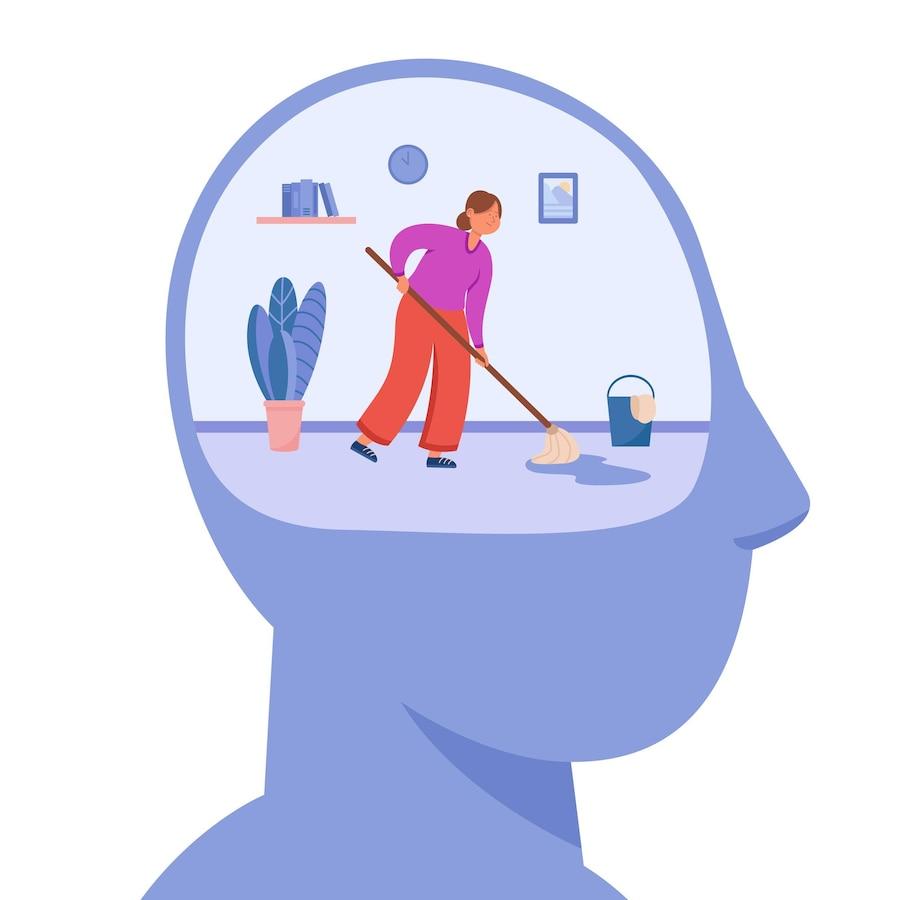Many high school students in 2022 prioritize academics over their personal needs. Homework and essays become infinitely more important than taking a few minutes to reflect on your day, getting enough sleep, or watching your favorite movie.
Self-care should never be a “once in a blue moon” experience. It’s an important part of maintaining your health mentally and physically. According to Oxford Dictionaries, self-care is “the practice of taking action to preserve or improve one’s own health.” Self-care can range from a weekend dedicated to your needs, five minutes during your day to do skin care, or taking a long shower.
I had the chance to talk to the co-presidents of the Mental Health Club here at Franklin High School and find out what inspires them to promote positive mental health practices. While reflecting on my personal trials with mental health, I have found self-care to be an excellent coping mechanism, and many other students have a similar belief.
One of the many misconceptions about self-care is that it has to be an extravagant, expensive ordeal, only truly obtainable to celebrities. “Self-care is really anything you make it out to be,” says Charlotte Storrs, a junior at Franklin.
Storrs stated that “people [often] do too much and then they don’t take time for themselves.” She went on to say that using self-care has helped improve her mental health, especially as a student-athlete. “I definitely experienced burn-out like during the basketball season,” she says. Trying to excel in classes and on the court can be overwhelming and reduce time for personal care.
Burnout is a common and practically unavoidable problem that many students have experienced. Storrs’ co-president of the Franklin Mental Health Club is Gena Roe, a senior who has experienced burnout firsthand. “I just put too much on my schedule […] and then I feel like I don’t have any time to […] take care of myself,” she says, going on to explain that when there is too much on her plate, all interest is lost.
According to The American Psychological Association (APA), “students say that simple changes can make a big impact.” Additionally, APA states that knowing your stressors and barriers is extremely important. Knowing your limits can help you accurately assess when you need to step back and look after yourself. Students checking in on themselves and normalizing the topic of self-care in schools will help to promote this important practice.
Junior Class President Luci Kennedy-Wong also see’s self-care as an important part of being a successful student. She explains that she doesn’t think schools “put enough emphasis on making sure that students’ mental and physical wellbeing is taken care of.” Kennedy-Wong went on to state that teens are overwhelmed with heaps of work and with personal commitments but she “[has never] seen [schools] do anything to help or accommodate them.” Making sure there is a work and life balance is crucial to the success of students.
“Taking care of yourself and your body are part of the same thing,” says Kennedy-Wong, and her words ring true. Students have a lot on their plate, but with the aid of self-care, they can succeed in ulterior ways. “[Putting] yourself first is a very important and hard thing for a lot of people to do,” says Kennedy-Wong. Even so, she believes that self-care helps students “perform their best [especially in] other parts of their life.”
Roe and Storrs shared similar sentiments. “[Self-care lets] your brain take a break from what you’ve been doing,” Storrs says. Giving your brain a break helps you stay on track and be less stressed. Roe goes on to add that she “went a long time without prioritizing [her] self-care and it made [her] mental health go down.” She notes, “recently I’ve been trying to prioritize myself and it’s helped me a lot.”
It is important to mention that, when you add in factors like mental illness, it can be even harder to take time for self-care. Not doing self-care every day isn’t the end of the world, but loving yourself for what you can do is the most crucial part of caring for your brain and body.
Self-care helps students and people all over the world. By normalizing self-care and sharing knowledge, it’s easier to get the help we deserve. This will also cut back on the amount of stress we face as students, by knowing it is okay to not be okay. Burn-out and feeling overwhelmed can be reduced by taking a few minutes to ourselves in our hectic day. In many ways, if you think of your body and mind as a plant, you can identify what you need and tend to it. “Our bodies are our garden to which our wills are gardeners,” says William Shakespeare. If we follow the lesson behind Shakespeare’s words, we can strengthen our wills and in turn our minds.


































